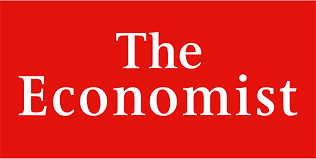Local economy expected to slow from 8 to 4 percent: Economist Intelligence
The Economist Intelligence Unit said the political rift between the executive and legislative authorities, if it continues in Kuwait as before, and to add insult to injury the bureaucracy, will alienate some investors and slow down the pace of partnership projects between the public and private sectors.
A local Arabic daily said, it is likely that this will have a negative impact on the business climate in the country between 2023 and 2027 and reduce the prospects for growth in the longer term.
The report issued by the unit expect the real GDP in 2023 and 2024 to be stable after the strong growth that it will record in 2022 and 2023 as a result of the rise in global oil prices, and the termination of production quotas that had been applied by the “OPEC Plus” alliance.
The unit also predicted that there would be an increase in oil production by 6 percent to an average of 2.85 million barrels per day in 2023, due to the termination of the production quotas of “OPEC Plus” and the new production capacity at the Al-Zour refinery.
However, despite the increase in oil production, the Economist Intelligence suggested that the growth of real GDP, which is estimated to record an average of 8 percent between 2022 and 2023, will slow to a level of 4 percent, given that the rise in oil production will not be enough to compensate for global price decline.
The Economist Intelligence believes that growth will be moderate during the remainder of the forecast period, averaging 1.8 percent annually in the years 2024/2025 – 2027/2028, with the decline in global oil prices, although domestic production will rise slowly, causing a slowdown in export growth, and in Government and private consumption.
The unit explained that the rise in interest rates locally and globally will discourage investments, noting that Kuwait will maintain the current peg of its currency during the forecast period, given the financial stability that it achieves for the country, indicating that the authorities can rely on the support of the Kuwait Investment Authority, and the estimated foreign exchange reserves at the end of the quarter. The second of 2022 amounted to 46.8 billion dollars, excluding gold.
The unit expected the dinar to maintain its stability against the dollar between 2023 and 2027 with an average of 0.306 per dollar, knowing that it is linked to a diverse basket of foreign currencies dominated by the dollar.
With regard to monetary policy, the “Economist Intelligence” expected that the Central Bank of Kuwait would maintain the current peg to the currency, and also expected the US Federal Reserve to announce a series of interest rate increases by 2022/2023, after increases totaling 225 basis points between last March and July.
The Central Bank of Kuwait announced that the discount rate will be raised on September 21 by a quarter point to reach 3 percent, compared to 1.5 percent that was scheduled for the end of 2021.
The unit expected the Federal Reserve to raise the interest rate by another 150 basis points by the end of the year. It also expected the Central Bank to move in the same direction, without being matched by raising the rate from 3 percent currently to 3.5 percent by the end of the year.
The sources noted the possibility of the United States reaching the target inflation rate in 2024, which will lead to moderation in interest rates in the United States and in Kuwait during 2024 and 2025, and to a decline in the domestic interest rate by the end of 2027.
With regard to the price inflation rate in Kuwait, the report stated that it rose to an estimated 5.5 percent in 2022 due to the global rise in food and raw materials prices as a result of the Russian-Ukrainian conflict, noting that it recorded 4.15% on an annual basis last August.
The unit expects inflation in Kuwait to decline to 3.2 percent in 2023 due to the gradual tightening of monetary policy from 2022, and the relatively strong budget situation, which helps to offset the slight rise in imported inflation as a result of a weak dollar.
While the “Economist Intelligence” expected the inflation rate to be around 2.3 percent in 2024-2025, and if a value-added tax is applied, it suggested 1.4 percent for the average rate during 2026 and 2027.
The Economist Intelligence reports that the goals of the five-year development plan will prove to be over-ambitious, and will be constrained by political deadlock and a sluggish bureaucracy.
With regard to the Kuwaitization process, sources explained that the measures to reduce the number of foreign workers in the public sector were driven by the increasing demands from Kuwaitis to get work, and it is expected that there will be a decrease in the proportion of expatriates in the labor force during 2023-2027 with the increase of parliamentary pressures to intensify Kuwaitization efforts.
It indicated that reliance on foreign workers will remain high in some sectors, with employers facing difficulties in replacing local workers with expatriates, due to the lack of skills of Kuwaitis, and their reluctance to do many of the work done by foreign workers, which requires low skills.
The sources pointed out that the government continues to provide job opportunities for Kuwaitis in the public sector, with a focus on additional training to improve skills, with a main objective of maintaining the social contract with citizens.








